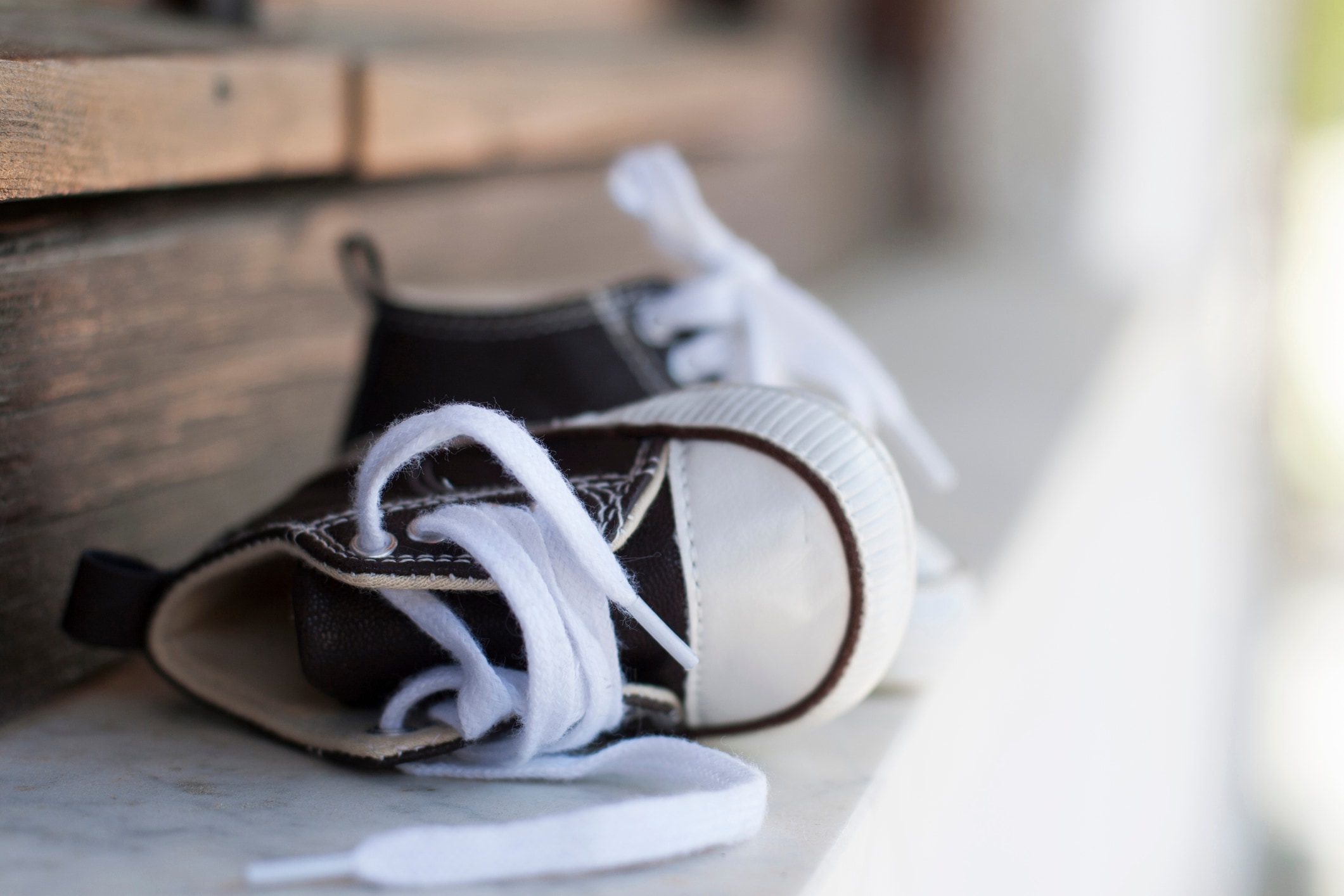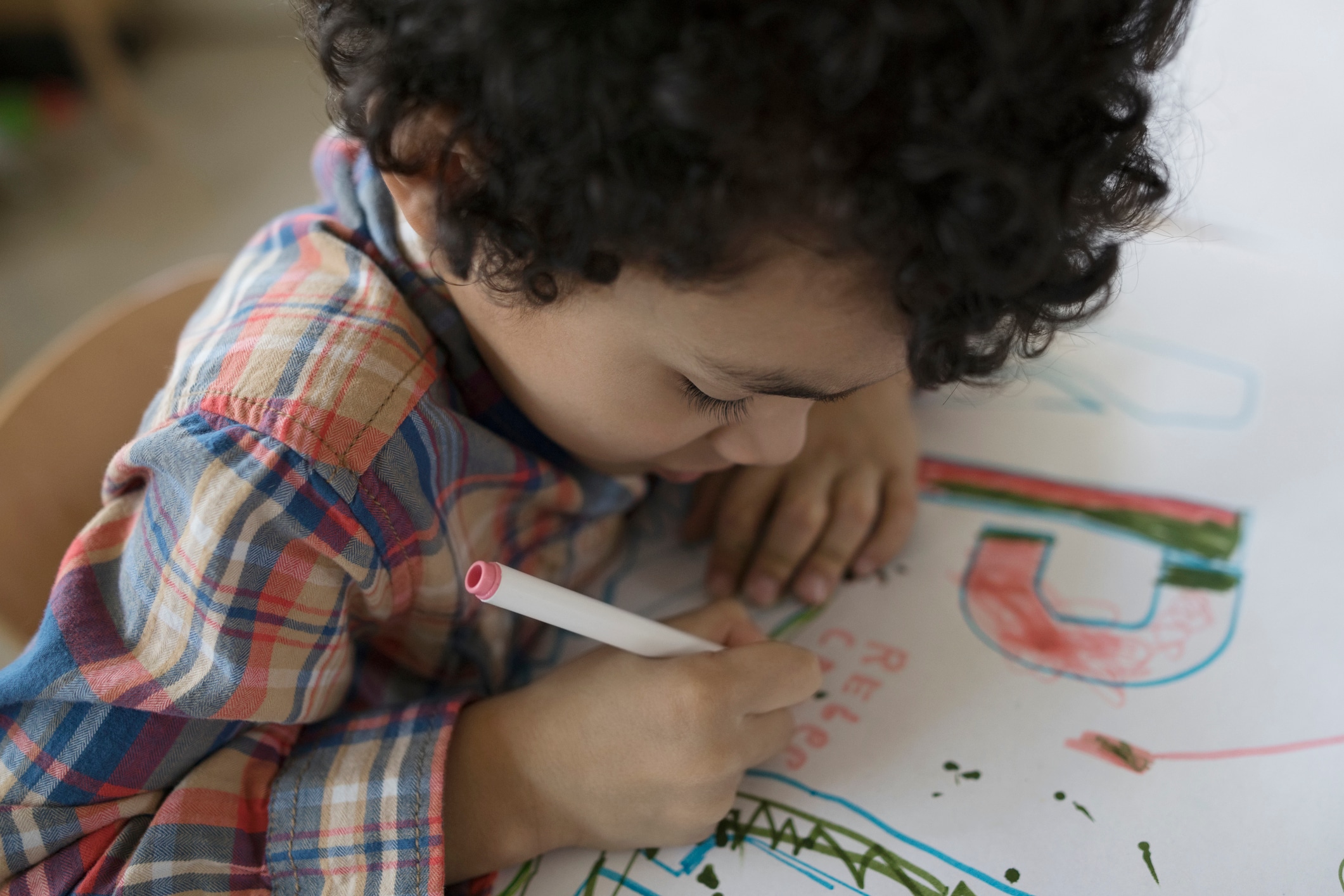As teachers and kids across the country returned to school, my husband, kids and I began our second year as a home-school family. I was ready to go with new school supplies, lesson plans and schedules I’d started putting together months before our first official day of school. It was easy to find our groove now that we’re no longer home-school rookies, but there are plenty of things I would have done differently if I could go back and do our first home-school year all over again.
I started home-schooling because of the pandemic, and I’m certainly not the only one. From 1999-2012, the rate of home-schooling families in the US held steady at around 3.3%. But, during the fall of the 2020-2021 school year, the percentage of households with school-age children who reported home-schooling grew to 11.1%.
Being a first-time home-schooler is an exciting experience, but it can also be overwhelming and exhausting as you try to navigate an entirely new way of educating your kids. Now that I’ve survived the newbie home-schooler phase and had time to make all of the most common mistakes, here are nine important lessons I learned during my first year as a home-school parent.
1. Home-school isn’t like public school, and that’s OK
As a new home-schooler, I thought it was my job to recreate the classroom experience at home. I spent hours looking for textbooks my kids’ former teachers might use, and I panicked if our day wasn’t structured like a typical day at school. Eventually, I came to understand that teaching two kids at home is different from teaching 22 kids in a classroom, and it’s OK to do our own thing. Often, a home-school day is shorter than a regular school day, and since I’m working one-on-one with each of my kids, we can move through lessons more quickly when they excel or slow down if something isn’t clicking. There are many ways to learn, and mimicking a certain teacher or lesson plan isn’t required.
2. Don’t rush to choose a curriculum
There are dozens of curriculum options for home-schoolers. Some are app-based, others can be printed and bound and there are even online classes for kids. As a new home-schooler, I asked for recommendations and was quick to purchase whatever other home-schooling parents said was the best. I learned the hard way that it can take a few tries to find what works for your family. Many curriculum programs offer placement tests and free samples. Instead of rushing to pick one, take advantage of the chance to try different options, and don’t be afraid to experiment until you find what truly clicks with your kids.
3. Home-school doesn’t need to cost a fortune
Learning at home means you’re covering the cost of your own supplies, curriculum and activities. That can get expensive quickly, but there are ways to save money. There are a number of free curriculum options and apps online, and there are also sites that allow you to download worksheets, lesson plans and unit studies for free or at a low cost. If you join online home-school groups, many also have events where you can buy or sell gently used school items or even do free trades to cut down on your out-of-pocket expenses.
4. Learning happens everywhere
When I first started home-schooling, I was so stressed out about trying to fill the entire day with assignments. I spent hours planning lessons and drove my kids crazy by asking them to do worksheet after worksheet. Once we found our groove with school, I realized the time we spend on schoolwork isn’t the only opportunity for learning. We can cook a new recipe together for extra practice with math and reading. We recently raised and studied monarch caterpillars after we found some while watering the flowers. I don’t have to stress about filling the day with busywork because even when school time is finished, we keep learning all day long.
5. Let the kids take the lead
One of the great things about home-schooling is how child-centered it can be. While I certainly spend plenty of time planning and making sure my kids are meeting their educational goals, I’ve also learned to let their unique interests guide our day sometimes. For example, if my son has a question about sharks, we can do a mini research project to find the answer, and that’s schoolwork he’s actually excited about. My kids also love music, so every week we learn about a different musician or composer and listen to their music while we work. Letting kids guide some of their education helps them feel more engaged and sparks their love of learning.
6. Home-schooling is better with support
It’s a myth that home-school families spend most of their time alone. While the pandemic certainly limits options for socializing, there are actually dozens of ways to make home-school friends. I’m in multiple home-school Facebook groups where I’ve met like-minded parents. My city also has sports teams for home-schoolers, as well as a home-school center with group classes that cover subjects like foreign languages, art and music. Local museums and children’s theaters sometimes offer daytime classes for home-school kids, and our local home-school groups have weekly meetups for outdoor park days, board games and crafting.
7. People might judge you for home-schooling
A lot of people make assumptions about home-school families. They might assume you home-school for religious reasons or think your kids aren’t getting a quality education. In reality, people choose to home-school for so many different reasons, and technology has given home-schoolers a wealth of resources to help kids succeed. I’ve met home-school parents who are scientists, doctors and former teachers, as well as home-school kids who’ve gone on to esteemed colleges and great careers. It isn’t your job to change anyone’s mind about home-schooling. It’s only your job to give your kids the best education and school experience you can.
8. Don’t compare yourself to other home-school families
There is no “right way” to home-school. You might scroll through Pinterest and feel guilty because you don’t have a beautifully decorated school room or use adorable DIY games and activities. Remember that no two home-schools are alike. Some parents home-school full time while others do it at night and on weekends. Some learn at the kitchen table while others attend a group school or convert an entire room into a classroom. None of these options is “better” than the others. The best home-school style for your family is the one that fits your schedule, space and budget, and your kids will thrive as long as you’re doing what works for you.
9. Parents learn a lot from home-schooling, too
I knew my kids would learn a lot when we started home-schooling, but I didn’t anticipate how much I’d be learning as well. As I’m preparing lessons and researching different topics for our school days, I’m re-learning things from my own school years that I’ve forgotten and deepening my understanding of the world around me. I know more about life cycles, layers of the ocean and types of clouds than I ever thought possible, thanks to our science lessons, and I have a renewed interest in exploring the subjects that spark my own curiosity when we aren’t in the classroom.





